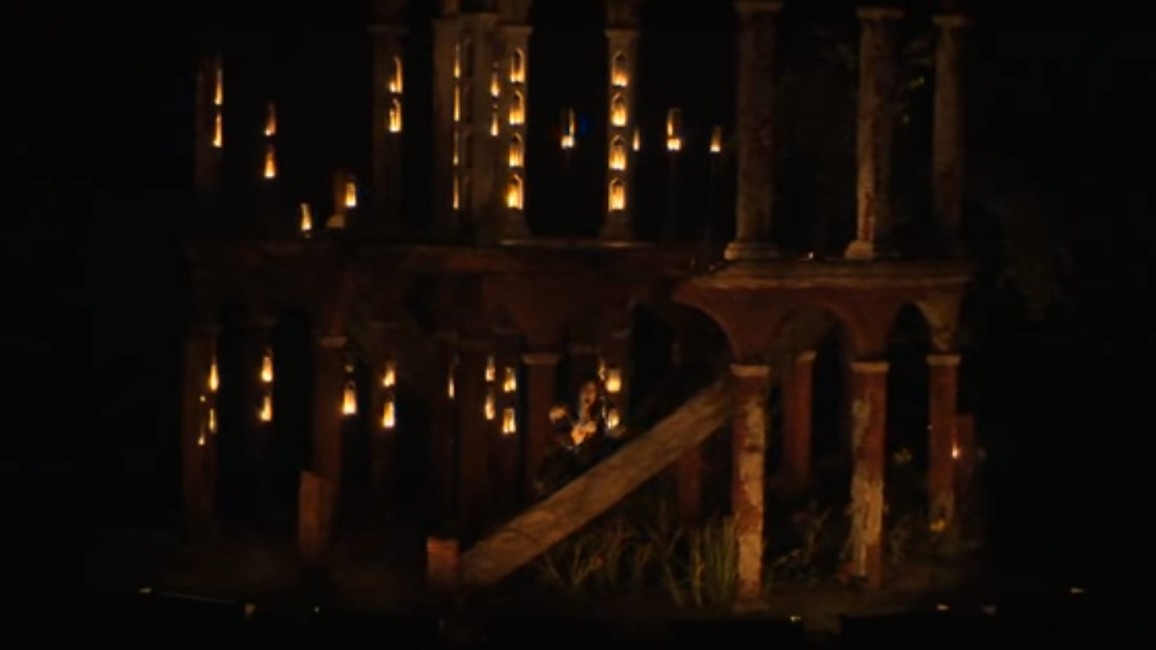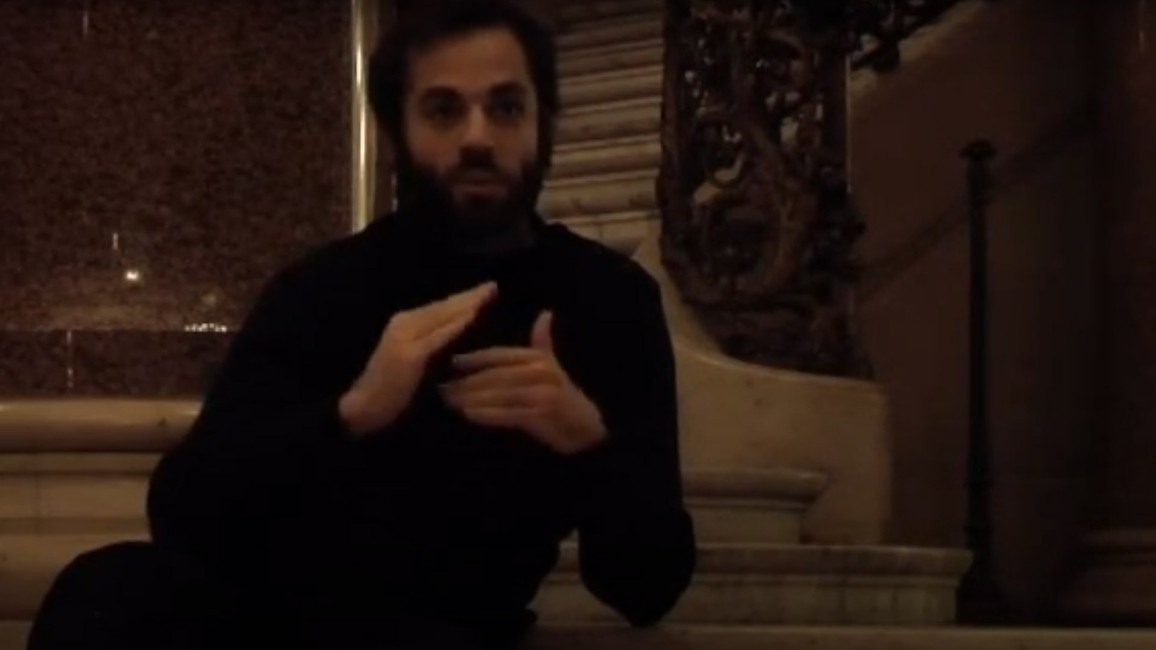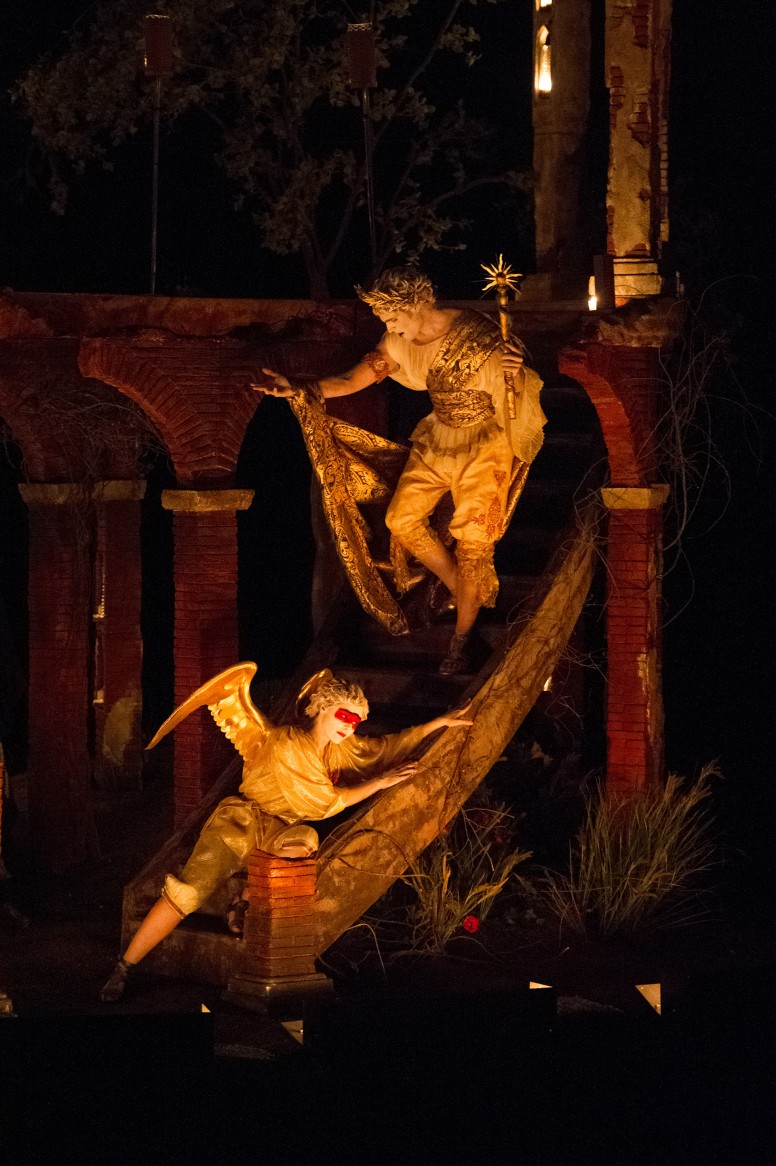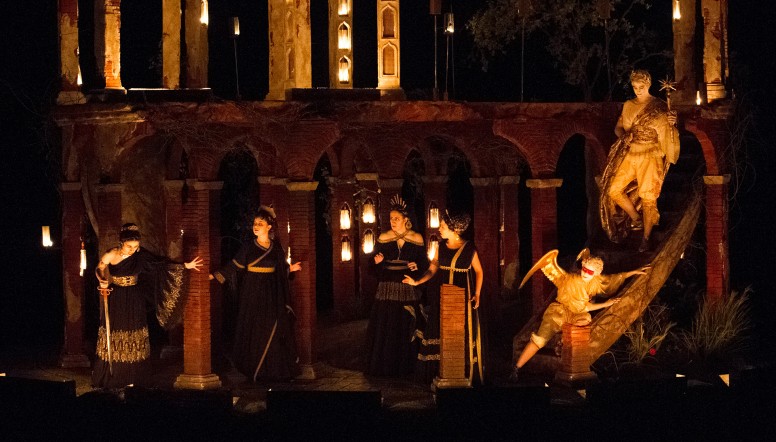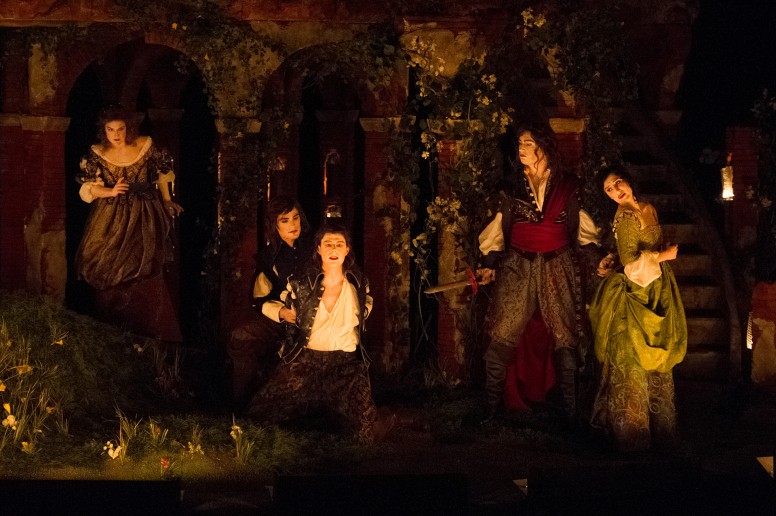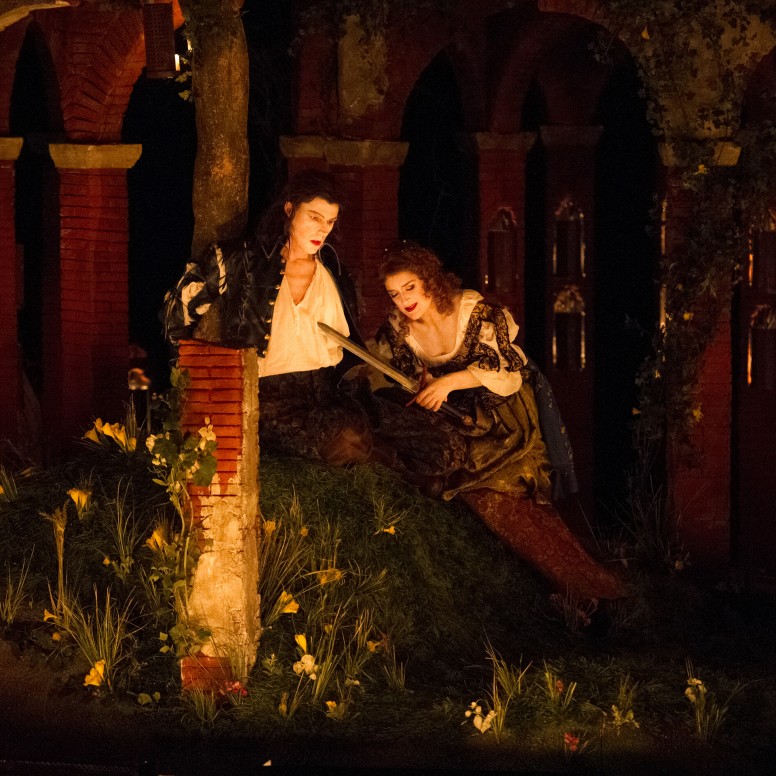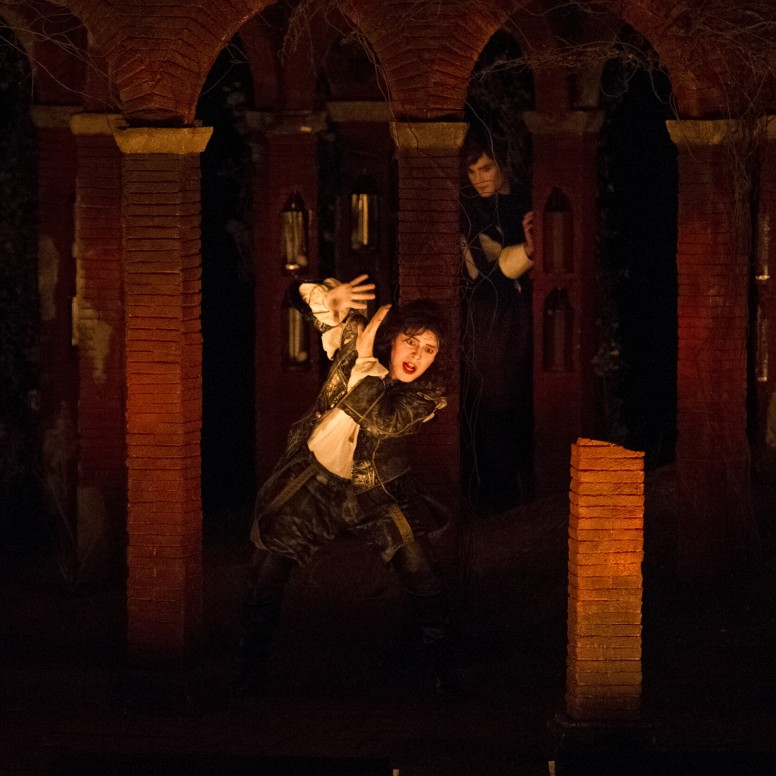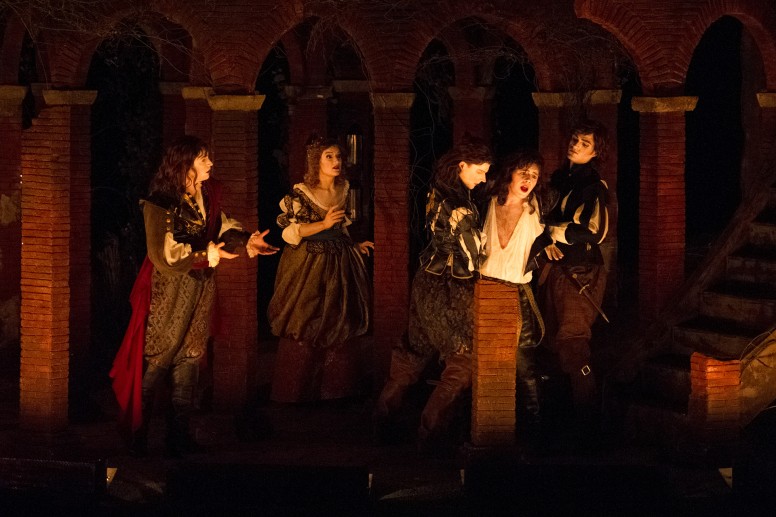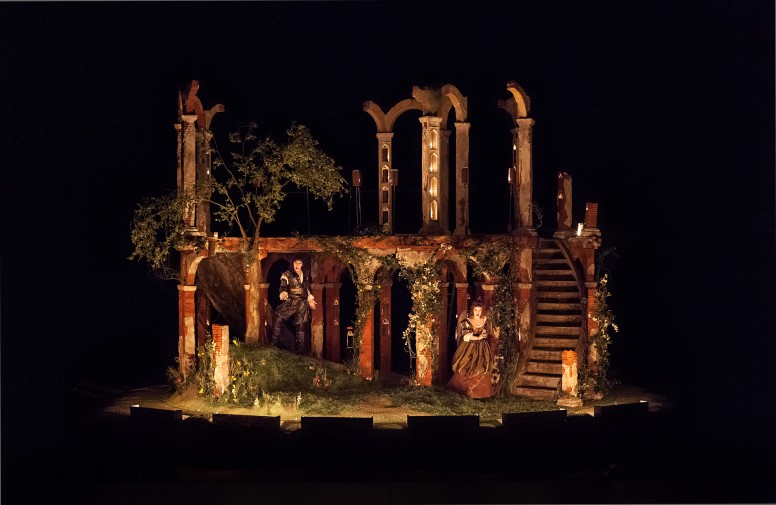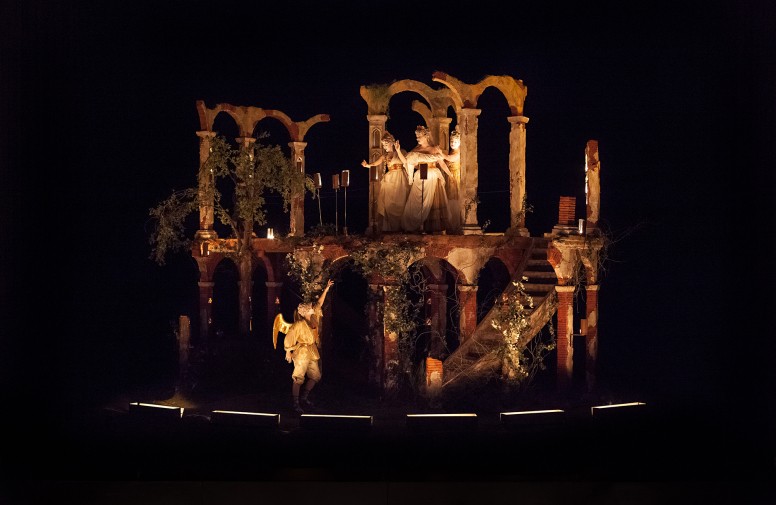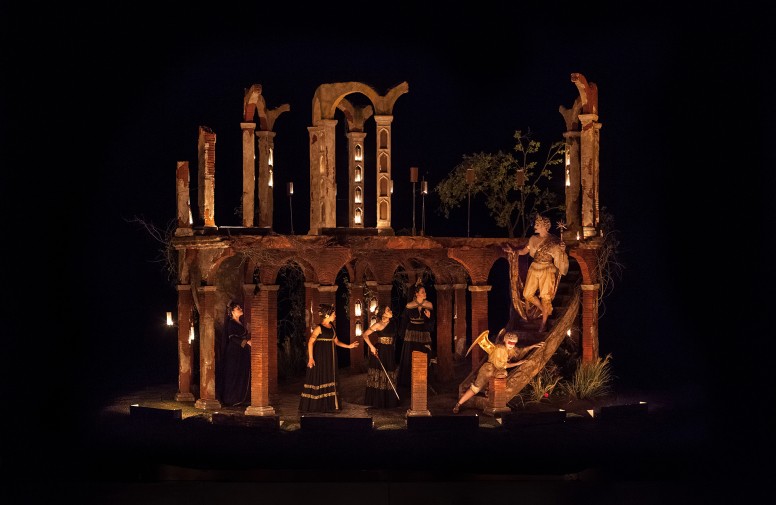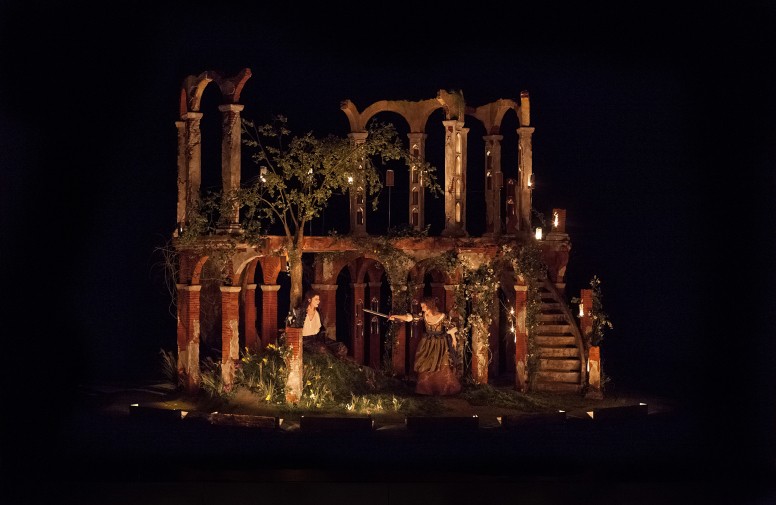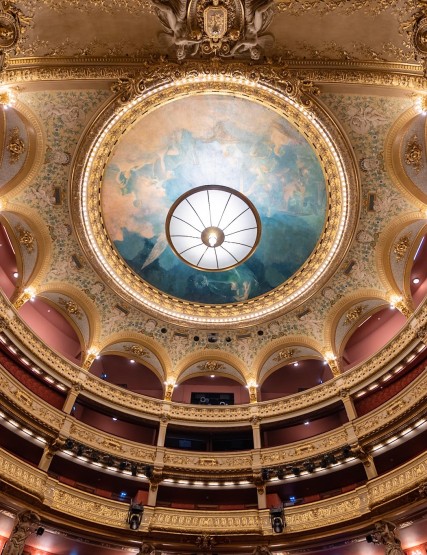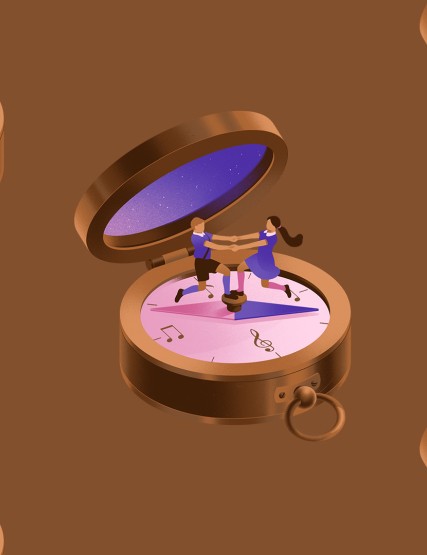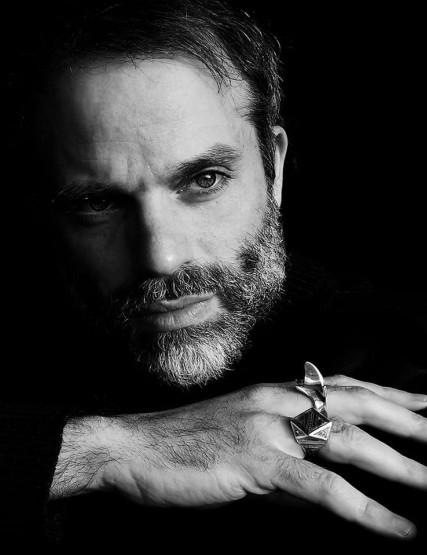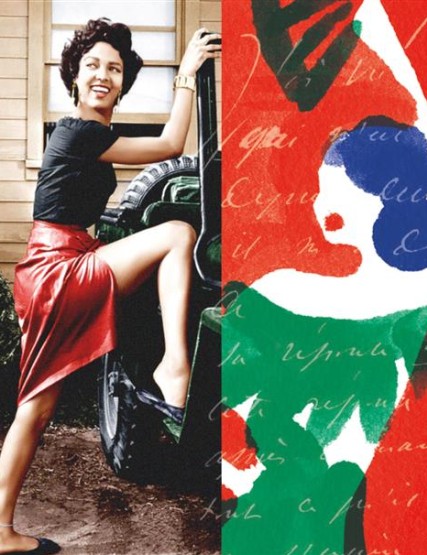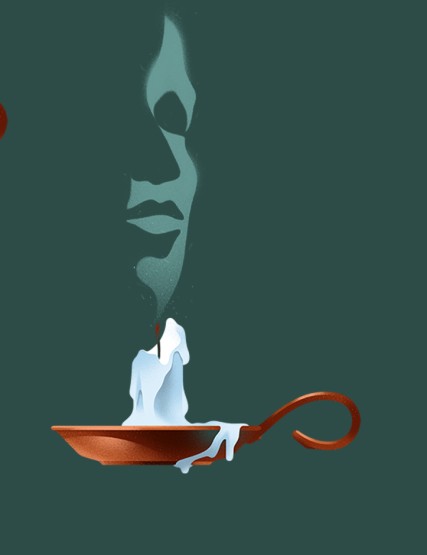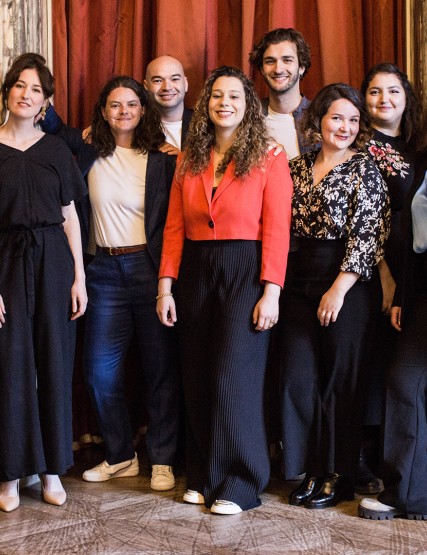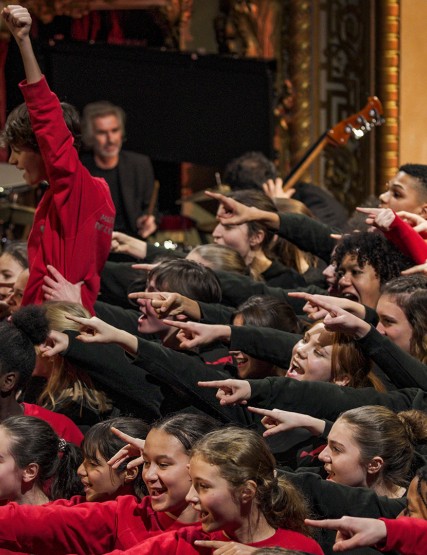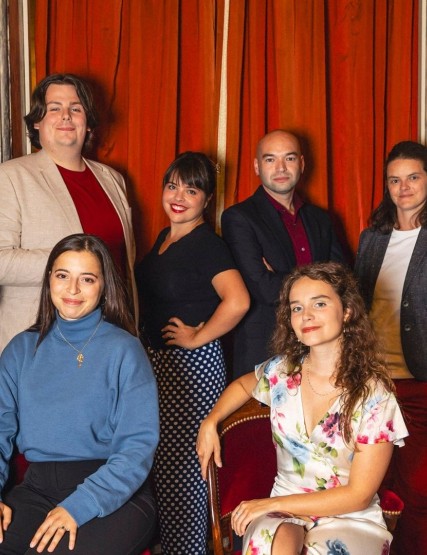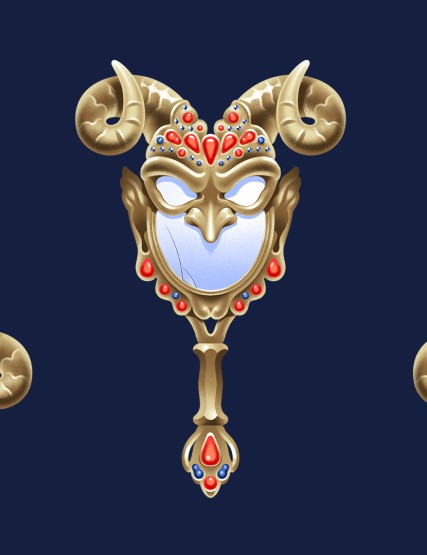Favola drammatica musicale in a prologue and 3 acts by Pier Francesco Cavalli. Libretto by Giovanni Faustini. Premiered at the Teatro San Cassiano in Venice in 1643.
Presentation of the work by Agnès Terrier 40 minutes prior to each performance.
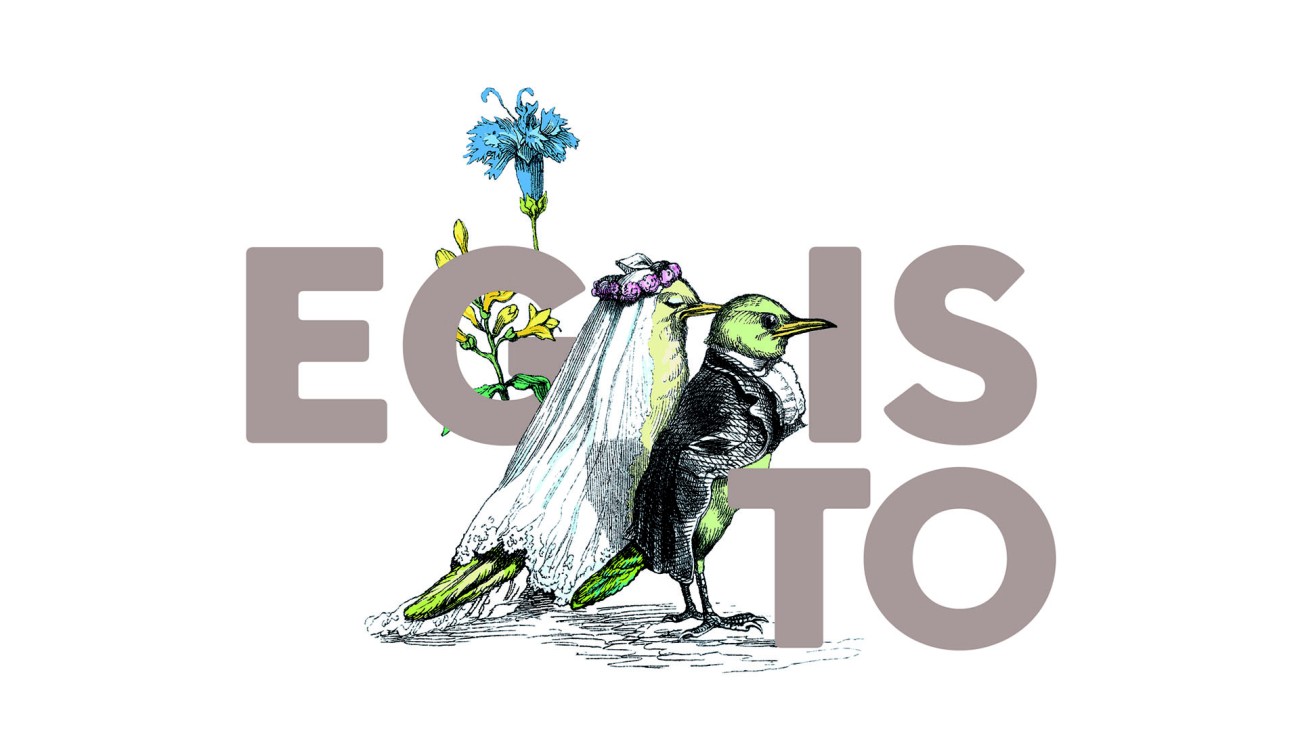
Francesco Cavalli was the director of Venice’s Teatro San Cassiano, the first public opera house in Europe, when he composed Egisto, which was to be a huge success throughout Italy. Together with Faustini, as important a collaborator to him as was Quinault to Lully, Cavalli shaped Venetian opera between scenic profusion, burlesque humor and exacerbated musical expressiveness. Instead of staging Agamemnon’s murderer, this musical fable presents two couples whose fidelity is put to the test by inconstant gods. Travesties, abductions, threats, delusion, madness: the hearts are clouded by the powers of the imagination with the utmost passions. Preserved as two different copies in Venice and Vienna, the score was restored by Vincent Dumestre who, after Cadmus et Hermione, presents with Benjamin Lazar and Le Poème Harmonique a second opera in our theater and the first performance of the work in France.
Prologue
Night calls out the shadows to join her and fight the Sun in the other hemisphere so that Dawn can settle on the island of Zacinto in the Ionian Sea.
Act I
In the early morning Lidio leads his beloved Clori to a grove. She shows him their names carved on trees. Their happiness is disturbed by the sighs of a sleeping man. He complains aloud for having been betrayed by Clori. Realizing that the man is Egisto, Clori faints to the astonishment of Lidio. He takes her away while Egisto and Climene awake. They both escaped captivity and Egisto led Climene back to her homeland. Now free, he wants to return to Delos and his lover Clori from whom he has been separated by Venus: is he not a descendant of the Sun, the jealous goddess's enemy? Climene has also been taken away from her betrothed Lidio while captured by pirates. They find the inscriptions on trees: they have both been betrayed during their absence and hope is followed by a desire for revenge. Hipparco, Clori's unlucky suitor, is roaming through the country. His anger is stirred when he sees the carved trunks. Old Dema tries her hand at matchmaking and advocates polygamy and infidelity. Clori thanks capricious Cupid for having introduced her to Lidio and does not seem to miss Egisto. At Venus's palace, Beauty and Sensuality rejoice in their powers. They warmly welcome Cupid, the “blind and naked infant” yet almighty. Venus deplores that Egisto has found Clori again: Cupid leaves for the underworld to find a Fury to torment Egisto.
Act II
Egisto is lamenting across the country. He meets Clori who pretends she does not recognize him, calls him an impostor and claims that Egisto is dead. He gives in to despair and shows the first signs of madness. Climene is also looking for her former lover, Lidio. Their meeting confirms her misfortune: shameless Lidio confesses he loves Clori after he enjoyed the favors of Climene. Infuriated, the latter confides in her brother Hipparco who takes advantage of this pretext of honor to soothe his unrequited love: by killing Lidio, he will avenge his sister and Clori's contempt for him. Dema the servant passes by, bemoaning not to be loved by the youths she still lusts for. In the underworld, Semele, Phaedra, Dido and Hero, who all died of amorous despair, catch Cupid for revenge. Apollo comes to save him on one condition: reconcile Clori with her dear Egisto. Cupid promises to do good in the future but nobody believes him.
Act III
In the grove, Clori and Lidio return to their happiness but Hipparco overtakes them. He abducts Clori and has Lidio tied down to Climene, who is ready to kill him. Regretful of losing Clori, Lidio demands death but Climene, still in love, is unable to kill him and wants to stab herself at his feet. Lidio recovers his former feelings at this utmost act of love. Cupid appears: overjoyed at this reversal attributed to his arrows but affected by the underworld scene, he reviles women. Gone mad, Egisto is roaming plagued by frightening visions: he believes he is descending into the underworld. Meanwhile, Hipparco vainly implores Clori, abducted in his palace. The arrival of Lidio and Climene together again relieves the jealous brother. Egisto arrives and exhibits his madness to the others. The men make fun of him whereas Climene fears that his delirium might lead them to madness too. As for Clori, she feels so much pity that she regains her love. A goddess, the First Hour, sent by Apollo, comes to restore Egisto's senses. Egisto and Clori prepare to return to Delos and leave Hipparco, Climene and Lidio, who sing Cupid's praises.
Music direction, Vincent Dumestre • Staging, Benjamin Lazar • With Marc Mauillon, Anders Dahlin, Claire Lefilliâtre, Isabelle Druet, Cyril Auvity, Ana Quintans, Luciana Mancini, Serge Goubioud, David Tricou • Orchestra, Le Poème Harmonique
See all the castWednesday, February 1, 2012 - 8:00pm
Friday, February 3, 2012 - 8:00pm
Sunday, February 5, 2012 - 3:00pm
Monday, February 6, 2012 - 8:00pm
Wednesday, February 8, 2012 - 8:00pm
Thursday, February 9, 2012 - 8:00pm
2:45 - Salle Favart
115, 95, 70, 40, 15, 6 €
Cast















Orchestra Le Poème Harmonique
Production : Opéra Comique
Co-production: Opéra de Rouen-Haute Normandie, Les Théâtres de la ville de Luxembourg, Le Poème Harmonique
Spectacle en italien surtitré
Partnership






